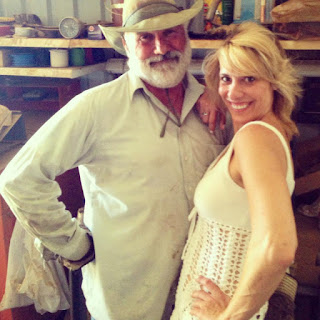THE DOWNFALL OF GALVESTON'S MAY WALKER BURLESON by T. Felder Dorn, Lone Star Book Blog Tour
by
T. Felder Dorn
Genre: True Crime
Publisher: Arcadia Publishing / The History Press
Facebook Twitter Instagram
Date of Publication: April 2, 2018
Publisher: Arcadia Publishing / The History Press
Facebook Twitter Instagram
Date of Publication: April 2, 2018
Number of Pages: 192 pages, 30 b&w images
Jennie May Walker Burleson was envied for having everything a woman of her time could want—the privileged upbringing, the dazzling good looks, the dashing war hero husband. She was admired for demonstrating that a woman could want more, from the front of the 1913 Woman Suffrage Procession to the bottom of a Mesoamerican archaeological dig. But as she stood over the body of her husband’s second wife, gun in hand, society’s envy and admiration quickly hardened into pity and scorn. T. Felder Dorn examines the complicated trajectory of her life as socialite, suffragist and shooter.
┃ Also available locally in Texas wherever books are sold ┃
INTERVIEW WITH T. FELDER DORN
How long have you been writing? How do your books relate to your life path?
I began writing about 25 years ago. Early in my undergraduate study at Duke, I struggled with a choice between chemistry and history. Chemistry won, and after being awarded a Ph.D. in that discipline by the University of Washington in Seattle, I taught chemistry in college for many years, then had a period as an academic administrator, and concluded my professional career with ten years of being a full-time professor of chemistry.
Near the end of those last ten years, I became intrigued when I learned that an ancestor had taught at a country school in Edgefield County, SC – and that the first woman to be electrocuted by the State of South Carolina had also taught there. The school had opened in 1925 and closed in 1953. Many of the women who had taught there were still living. This was a chance to go down “the road not taken.” With the help of former teachers and pupils, I wrote a history of the Tompkins School.
What do you think most Characterizes your writing?
I have written five books. Every book is a documentary that covers a piece of history, ranging from true crime stories to the role of Episcopal bishops in the antebellum and Civil War era. I believe that my books are characterized by meticulous research. I strive to ensure that the narratives are based upon what really happened and that any conclusions drawn or judgments made are supported by the facts of the case.
What did you enjoy most about writing this book?
The basic story line of this book is simple. A woman is embittered by a divorce that she vigorously strove to prevent and subsequently kills her ex-husband’s second wife. Why, however, would a prominent socialite and community leader who had achieved national recognition for her role as a woman’s rights advocate and who had contributed to the success of some major Mesoamerican archaeological expedition commit an act that not only took the life of another person, but also shattered her own life? This question is intensified by the fact that she had treated her marriage as a very low-priority part of her life. The most enjoyable (as well as difficult and frustrating) part of writing this book was examining Mrs. Burleson’s life through events that had an impact on her, through her correspondence, and through records of her interactions with others to try to understand what motivated – and drove – her.
If you could time travel, what time period would you first visit?
The time and place that I would most want to visit would be the American South during the last twenty antebellum years. I spent fourteen years researching, writing, revising, and working with an editor and copy editor on a book entitled Challenges on the Emmaus Road: Episcopal Bishops Confront Slavery, Civil War, and Emancipation. A primary goal was to determine what the bishops – North and South – believed about the institution of slavery and to understand why they held those beliefs. Using a number of sources, the chief one being the words of the bishops spoken in their addresses at annual diocesan conventions, I believe that I was successful in so far as what they believed was concerned, and, to a degree, with presentation of why they held those beliefs, but I did and do not at a gut level, however, truly understand how they could have held those beliefs. Being present in the period might provide insight into their thought processes in a way that written documentation of history does not.
T. Felder Dorn graduated from Duke University in 1954 with a BS in chemistry and was awarded a PhD in that discipline in 1958 by the University of Washington. He was a member of the chemistry faculty at the University of the South in Sewanee, Tennessee, in 1958–69 and then served four years on the program staff of the College Board in New York. From 1973 to 1991, he held administrative positions at Kean University in Union, New Jersey, serving as associate dean, dean and vice-president for academic affairs. His last ten years at Kean were spent as professor of chemistry. He retired in 2001. Felder Dorn and his wife, Sara Ruth, have resided in Millburn, New Jersey, since 1973. They have three children and three grandchildren. Dorn has previously published four books: Challenges on the Emmaus Road: Episcopal Bishops Confront Slavery, Civil War, and Emancipation (University of South Carolina Press, 2013); Death of a Policeman, Birth of a Baby: A Crime and Its Aftermath (Xlibris, 2012); The Guns of Meeting Street: A Southern Tragedy (University of South Carolina Press, 2001); and The Tompkins School, 1925–1953: A Community Institution (Attic Press, 1994).
VISIT THE OTHER GREAT BLOGS ON THE TOUR:
4/2/18
|
Promo
| |
4/2/18
|
Bonus Post
| |
4/3/18
|
Promo
| |
4/4/18
|
Review
| |
4/5/18
|
Excerpt
| |
4/6/18
|
Review
| |
4/7/18
|
Promo
| |
4/8/18
|
Author Interview
| |
4/9/18
|
Review
| |
4/10/18
|
Promo
| |
4/11/18
|
Review
|
blog tour services provided by



















Comments